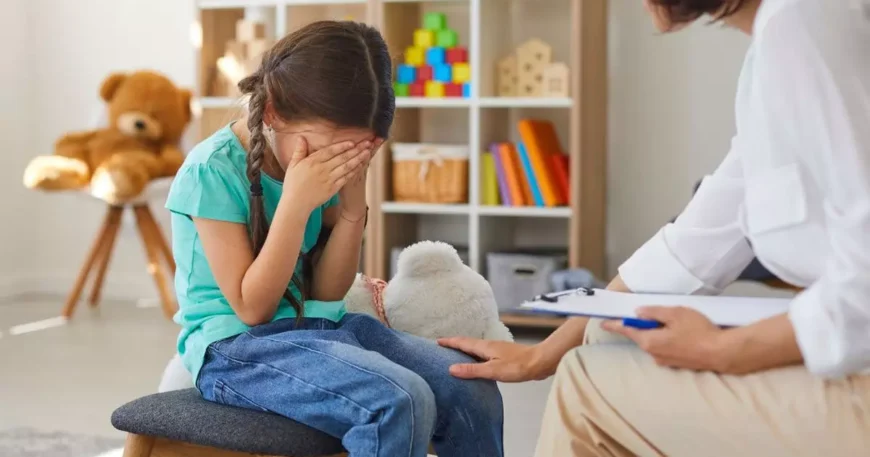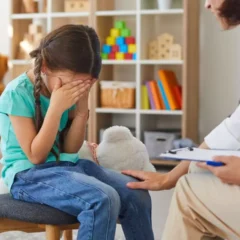
Recognizing Red Flags in Child Mental Health: A Guide for Parents, Teachers & Caregivers
As a parent, teacher, or caregiver, you’re often the first to notice the ups and downs of a child’s emotions. But sometimes, behavioral shifts go beyond normal developmental changes — they may signal an underlying mental health concern.
Understanding these red flags in child mental health is the first step toward early identification and intervention, both of which are crucial for a child’s long-term well-being.
Why Early Identification Matters
Children may not always have the words to describe their emotional distress. Instead, they show it through behaviors, mood changes, physical complaints, or academic decline. Ignoring these early warning signs can delay diagnosis and treatment, potentially affecting a child’s social skills, school performance, and self-esteem.
Red Flag Signs to Watch For
Every child is unique, but here are some warning signs that deserve attention:
- Persistent Sadness or Irritability
If a child appears unusually down, tearful, or frequently angry for more than two weeks, it could indicate depression. Children may also become more sensitive to rejection or criticism. - Withdrawal from Friends and Activities
Losing interest in previously enjoyed activities or isolating themselves from friends can be a sign of depression or anxiety. - Changes in Sleep or Appetite
Trouble sleeping, nightmares, sleeping too much, or major shifts in appetite may reflect emotional distress. - Excessive Worry or Fearfulness
Anxiety in children often shows up as constant worrying about school, family, or safety. They may seek reassurance or avoid certain situations altogether. - Decline in Academic Performance
A sudden drop in grades or difficulty concentrating may stem from emotional or cognitive challenges rather than laziness. - Aggressive or Oppositional Behavior
Frequent outbursts, defiance, or anger that feels “too much” for the situation can point to mood or behavioral disorders. - Physical Complaints Without Medical Cause
Recurrent headaches, stomachaches, or vague pains may be linked to hidden emotional struggles like anxiety or depression. - Talk of Self-Harm or Death
Any mention of disappearing, self-harming behaviors, or suicide must be taken seriously. Immediate professional support is essential. - Regressive Behaviors
Bedwetting, clinginess, or baby talk in older children can signal emotional overwhelm. - Difficulty Maintaining Relationships
Consistent struggles with friendships or understanding social cues may suggest emotional or developmental concerns.
Depression in Children and Adolescents
Depression in children often looks different than in adults. Instead of constant sadness, kids may show irritability, anger, or lack of energy. They may complain of unexplained physical issues or appear “disconnected.”
Common signs of childhood depression include:
- Persistent low mood or irritability
- Loss of interest in play or hobbies
- Decline in school performance
- Changes in sleep or eating habits
- Expressions of hopelessness or worthlessness
Early intervention — through counseling, therapy, or medical support — can help children recover and thrive.
Anxiety in Children and Adolescents
Anxiety is one of the most common mental health challenges in young people. While occasional worry is normal, excessive or long-lasting anxiety can interfere with school, relationships, and daily activities.
Signs of anxiety in children include:
- Constant worrying or “what if” thoughts
- Avoidance of social or school situations
- Frequent physical complaints like stomach pain or headaches
- Restlessness, irritability, or difficulty concentrating
- Need for constant reassurance from parents or teachers
With therapy, coping strategies, and supportive environments, children can learn to manage anxiety effectively.
When to Seek Professional Help
If you notice these signs persisting for more than a few weeks — or if they disrupt your child’s daily life at home or school — it’s important to consult a child and adolescent mental health professional. Early support can make a world of difference in your child’s emotional growth and resilience.
Final Words
Just as we prioritize physical health, our children’s emotional well-being deserves the same level of care and attention. By recognizing these red flags early, we can respond with empathy, understanding, and timely support.
Because every child deserves to grow up feeling safe, confident, and supported — both outside and within.



